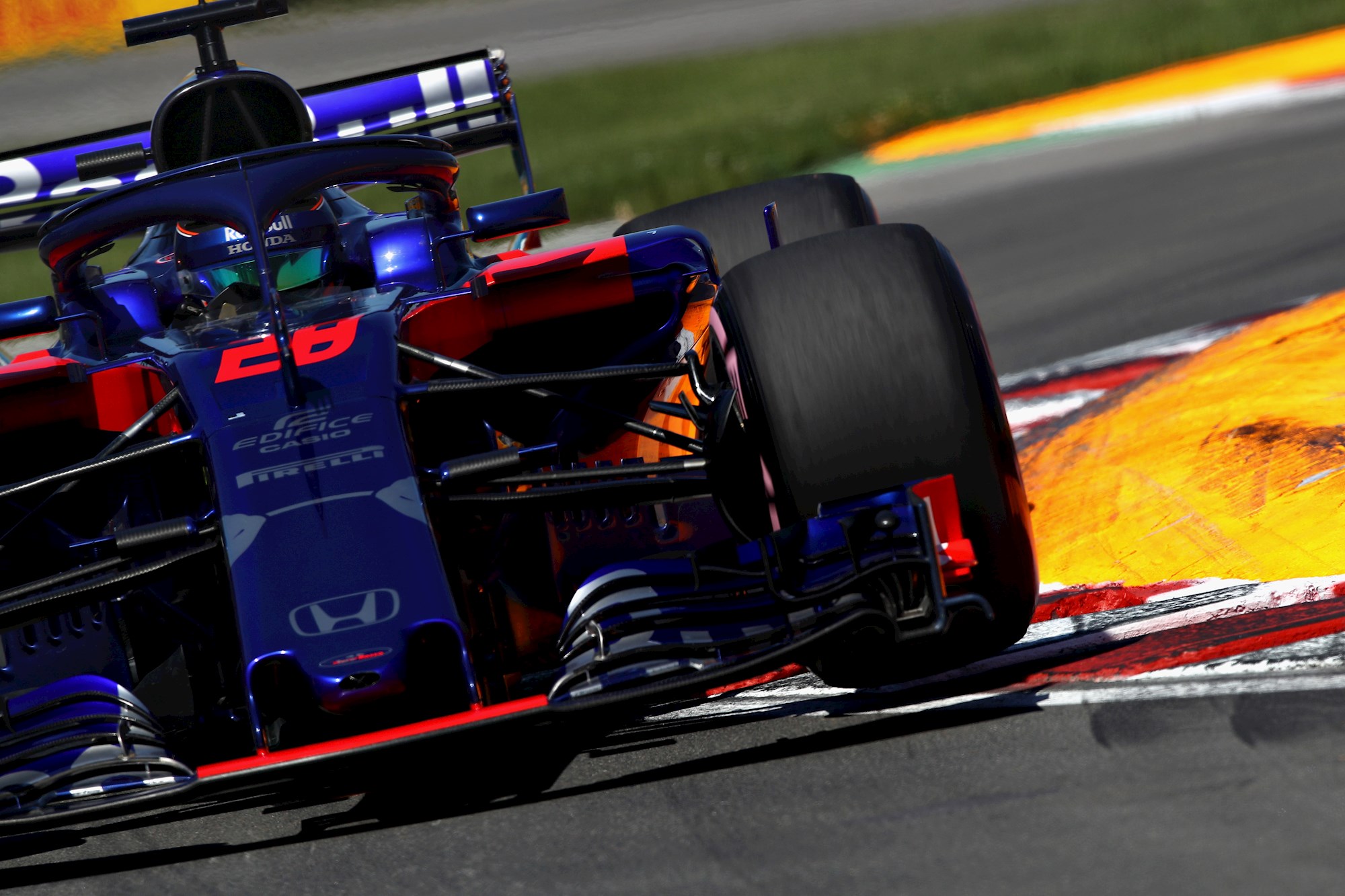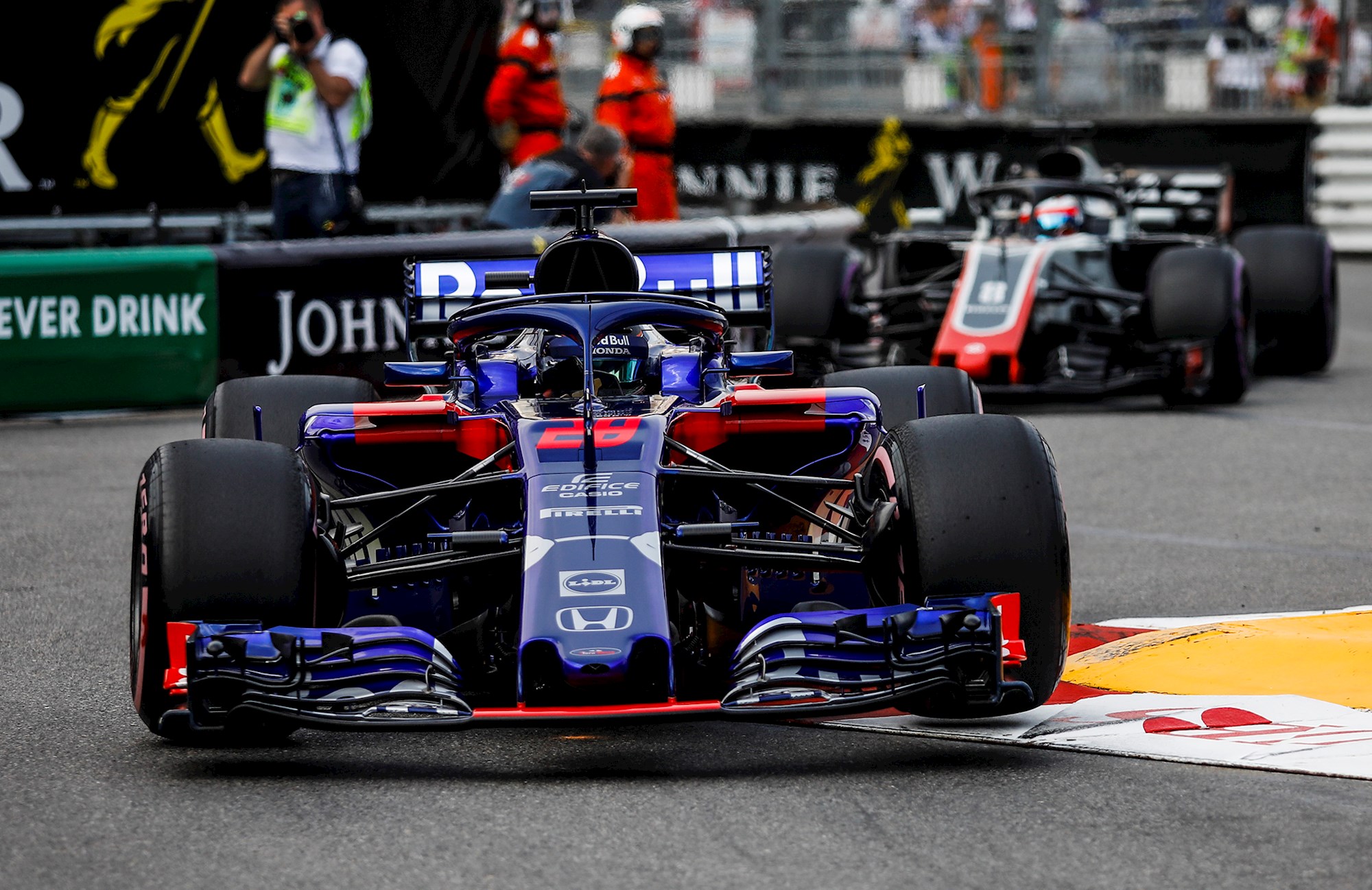A couple of years ago, switching to Honda as a power-unit supplier in Formula 1 would've been considered competitive suicide.
The Japanese manufacturer has a sparkling history in the sport, but its return alongside McLaren as a supplier in 2015 was far from triumphant. Over that first season, they only scored six points-paying finishes — despite both of their drivers (Fernando Alonso and Jenson Button) being former F1 champions.
For some context, Pastor Maldonado finished ahead of both of them in the standings. Comfortably.
The engines weren't only slow; they were also unreliable. And these trends continued for the next two years; the team lifted only by some genius driving from Alonso before ultimately pulling pin on the relationship at the end of last year in a swap to Renault power.
But fast forward to yesterday, and Red Bull — the undisputed third-best squad in the paddock behind Mercedes-Benz and Ferrari — confirmed that they would be switching to Honda for next season, joining sister team Scuderia Toro Rosso.
And, funnily enough, the response to the move has largely been positive. So, what's changed? How have Honda gone from laughing stock to no-brainers?
Performance

On paper, it's been a tough year for Scuderia Toro Rosso. With two debutantes behind the wheel (Brendon Hartley and Pierre Gasly) points have been hard to come by. Luck hasn't necessarily been on their side, either.
But, pace certainly hasn't been an issue. Both cars have spent much of the season circulating on the cusp of the top 10 for grunt, while at the recent Canadian GP Hartley and Gasly were faster through the speed trap than both of the Renault-powered leading Bulls (325.3km/h for the two Toros, while Ricciardo was the best of the Bulls on 324.6km/h).
Yes, there's other things that could have effected those speeds like individual set-up, traffic and the like, but it's a stat nonetheless that a chronic lack of top-end speed is a thing of the past. And on top of that, Red Bull team principal Christian Horner has cited Honda's pace at Montreal as a factor in the decision. "We decided that based on the information we had from Montreal – our decision, driven by engineering, was pretty clear cut in the end," he told Motorsport.com.
It's also worth noting that Gasly's stellar fourth-place finish at Bahrain was a better result (in only his second Grand Prix as a full-timer) than McLaren was able to score over three years with Honda support and two champion drivers.
Factory support
It's not exactly a secret that Red Bull's relationship with Renault was occasionally a tense one. The pair of companies, who's energy would best be spent working together, have instead spent much of the two seasons flinging mud at each other.
Engine failures have continued to be frequent across the team's two cars, prompting big cheese Helmut Marko demand a "fast and reliable engine" after Bahrain this year.
"We have been with them for 12 years, won eight championships together, and yet Renault is still criticised. We are used to it," said Renault engineer Cyril Abiteboul, a month after the comments — sounding more like a bitter spouse than a Formula 1 professional.
"They will never learn and they will never be able to appreciate the need for loyalty and commitment to a supplier." Youch, and that's just the tip of a long iceberg of spicy quotes.
The move to Honda indicates moving from 'customer team' to 'factory team', and with that will come (in theory) a better relationship. Honda don't have any other squads in the paddock to juggle (unlike Renault who also supply McLaren, and their own factory team), so that means less politicising, more resource, and a greater ability to focus.
Again, in theory.
Growth
There are many reasons that teams choose to expand. It can make the sport 'cheaper' as costs get spread across a larger base, it can create marketing opportunity or the potential for hierarchy, and it can give teams a greater platform for developing set-up across test days and race weekends.
While Scuderia Toro Rosso and Red Bull are based in different countries (Italy and Britain, respectively), thus muting the idea of chopping costs somewhat, the on-track benefits are clear to see as both strive to hone Honda's power unit together.
"I think the relationship with Toro Rosso has been extremely useful to Honda," Christian Horner told Motorsport.com. "Of course Red Bull Technology have an involvement with Toro Rosso through the supply of transmission and so on, so of course there are synergies there, and it only helps create further synergies between the two teams by having both powered by the same power unit.
"So yes, there are definite benefits from common supply, both for Honda, and for Red Bull's activities in F1."
Risk
Red Bull in their current form are a quick team, with two of the hottest-property drivers in the F1 landscape. They win races, they contend for podiums, they make edgy strategy calls. They're a team to watch.
But, it's hard to argue that they're on the same level as Ferrari and Mercedes. And while that's still the case, you'll still have drivers wanting to jump ship after they've reached their peak with the team. Just look at Daniel Ricciardo, who's tipped by many to leave the team at the end of the year to head to Ferrari.
Red Bull have persevered with Renault power for more than 10 years, but it's been five years since they last won a title, and arguably they haven't looked like a bonafide title contender ever since.
The shift to Honda does present some risk, but you can argue too that persevering with an engine package that hasn't looked any better than third best in the line-up is also an even bigger risk too ... especially if the goal at the end of the day is to contend for championships.
Sale
It's already been suggested that the move to Honda would provide an exit strategy for Red Bull, should they want to leave the sport after a successful tenure.
And while that rumour might be thinking a little bit far down the track, it's been no secret that the team have been connected to various buy-out rumours — most notably Porsche late last year.
And while in some cases it would be a shame to see Red Bull leave, a fully fledged factory Honda outfit — dressed in Japan's famous red and white (Championship White too, for old time's sake) is a tantalising prospect.
Speculation suggests a Honda takeover could unfold as early as 2020 or 2021. We'll keep a keen eye on the pit-lane scuttlebutt.
So, where does this leave Hartley?

Brendon Hartley's F1 career has attracted 12 months worth of rumours and gossip in the last 30 days alone.
There was talk his drive was on the rocks after crashing at Barcelona, then a prime result that went wanting at Monaco following another crash (another driver, Charles Leclerc, at fault this time) further poked the bear. Then there was confirmation (sort of) that the team had tried to replace him with McLaren reserve driver Lando Norris, but that had fallen through.
And the whole thing reignited again when Hartley crashed out on lap one of the Canadian GP after contact with Lance Stroll, forcing Red Bull's Helmut Marko to address the rumours — saying that the crash didn't change Brendon's position.
While a shift to Honda outright across both Honda squads might sound like good news for Hartley on the surface, that tone quickly changes if you take into account the rumour that his placement in the squad was intrinsically connected to Porsche's desire to buy the team — or at least enter a relationship to produce engines. Remember, he's still contracted to Porsche as a driver.
The move to Honda, if rumour is to be believed, places them as the front-running manufacturer to buy the team. That places Porsche in the cold, at which point they need to ask if they want to buy another team, or simply ditch the idea.
Now, some might write off Porsche's continued development of their LMP1 919 Hybrid (despite leaving the World Endurance Championship at the end of last year) as being a PR stunt for them to scoop lap records around the world. But there is also a theory that the team are using the hotted-up 919 to develop technology worth of Formula 1.
There's also a sneaky rumour that they're looking at buying Williams. A Kiwi in Martini colours would be nice, wouldn't it?




